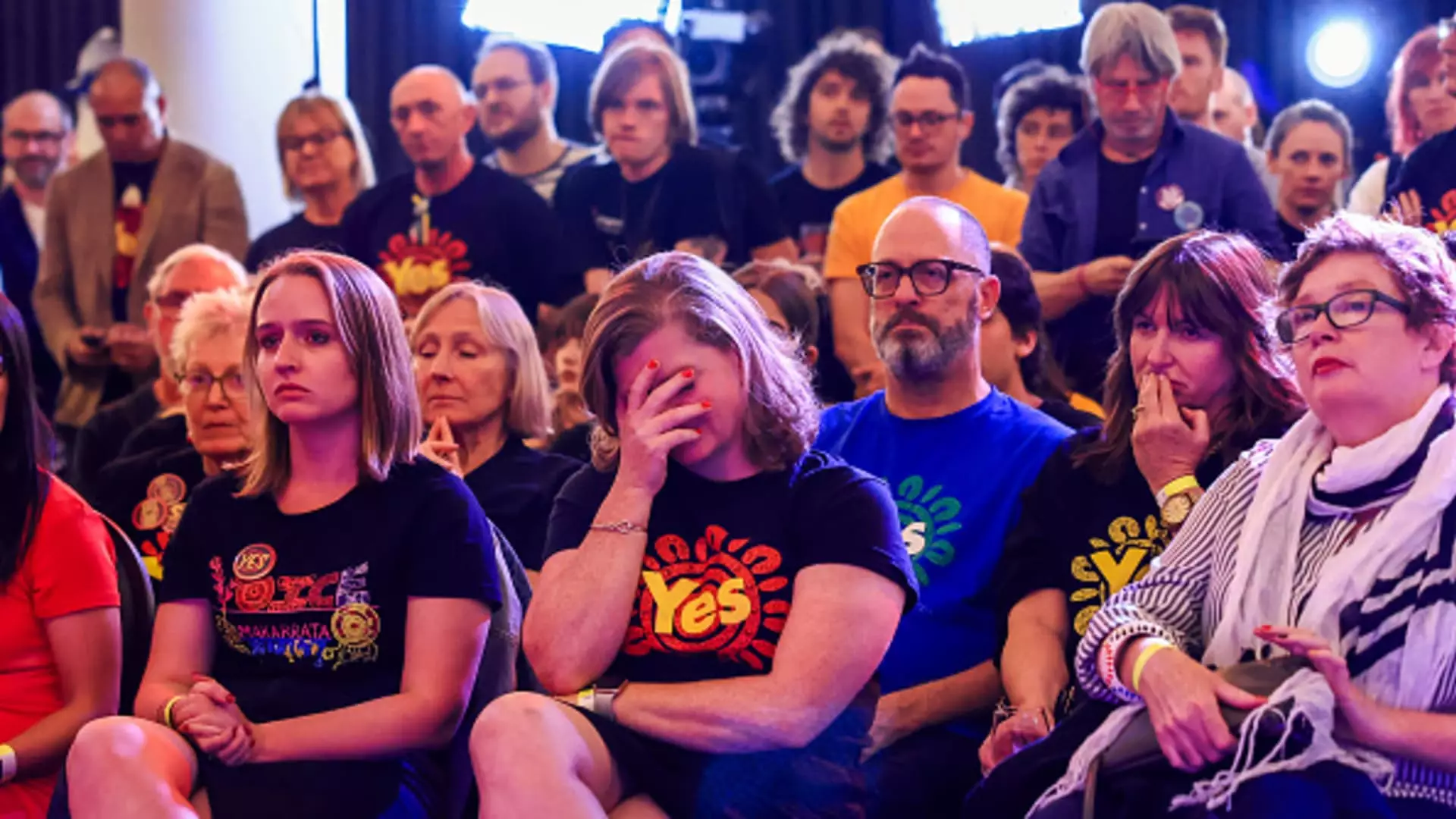Australia’s recent decision to decisively reject a proposal to recognise Indigenous people in the constitution has dealt a severe blow to the country’s efforts for reconciliation with its First Peoples. With 45% of the vote counted, the “No” vote led “Yes” by 57.35% to 42.65%. Australian TV networks projected that several states, including New South Wales, Tasmania, Queensland, and South Australia, would vote against altering the constitution. This devastating outcome puts a halt to the aspirations of the Indigenous population to have their voices heard and marks a regression in the country’s path towards reconciliation.
The proposal put forward in the referendum sought to establish an Indigenous advisory body called the ‘Voice to Parliament,’ which would have recognised Aboriginal and Torres Strait Island people. This initiative was part of the Uluru Statement from the Heart, a document crafted by Indigenous leaders in 2017 that outlined a roadmap for reconciliation with wider Australia. Proponents of the proposal argued that incorporating an Indigenous Voice into the constitution would foster unity and open a new era of collaboration and understanding. However, detractors believed it would be ineffective, divisive, and hinder government decision-making.
Australia’s Indigenous citizens, who account for 3.8% of the population, have inhabited the land for approximately 60,000 years. Yet, remarkably, they are not mentioned in the constitution. This omission perpetuates their marginalization and disadvantage across various socio-economic indicators. By rejecting the constitutional recognition of Indigenous people, Australia misses an opportunity to address historical injustices and move towards a more inclusive and egalitarian society.
A Refrain of Historical Denial
Referendums on significant issues are notoriously difficult to pass in Australia, and this latest rejection of constitutional recognition reflects a broader pattern. Since the country’s founding in 1901, only eight of the 44 referendums have succeeded. In fact, it has been almost a quarter of a century since the last referendum took place in Australia. This repeated failure exemplifies a reluctance to confront the country’s history and acknowledges the need for meaningful change when it comes to Indigenous rights and reconciliation.
One of the key factors that contributed to the failure of the ‘Yes’ campaign was the division among political leaders. While Prime Minister Anthony Albanese supported the Voice to Parliament, leaders of major conservative parties campaigned for a ‘No’ vote. This fragmented stance by political elites undermined the campaign’s efforts to gain widespread support and solidify unity. Moreover, critics argued that the ‘Yes’ campaign failed to connect with the wider Indigenous communities, thereby isolating themselves from the very people they sought to represent.
The referendum’s outcome calls for deep introspection and a renewed commitment to reconciliation in Australia. The rejection of constitutional recognition must serve as a turning point, leading to a reassessment of strategies and a focus on practical and positive outcomes. While the proposal may not have achieved the desired outcome this time, it is crucial to continue the dialogue and engagement with Indigenous communities to address their unique challenges and foster a more inclusive society.
Charting a New Path Forward
Foreign Minister Penny Wong aptly highlighted the task ahead, stating that the country must “come together and chart a new path forward.” This path should prioritize the voices of Indigenous peoples, ensuring their representation and participation in decision-making processes. Constructive engagement, education, and awareness on Indigenous issues are critical in fostering greater empathy and understanding among all Australians.
Australia’s resounding rejection of the proposal to recognise Indigenous people in the constitution represents a significant setback for reconciliation efforts. It underscores the urgent need for the nation to confront its historical injustices and work towards genuine inclusion and equality. While the outcome is disheartening, it should serve as a catalyst for collective reflection and renewed determination to forge a more equitable and harmonious future for all Australians.


Leave a Reply